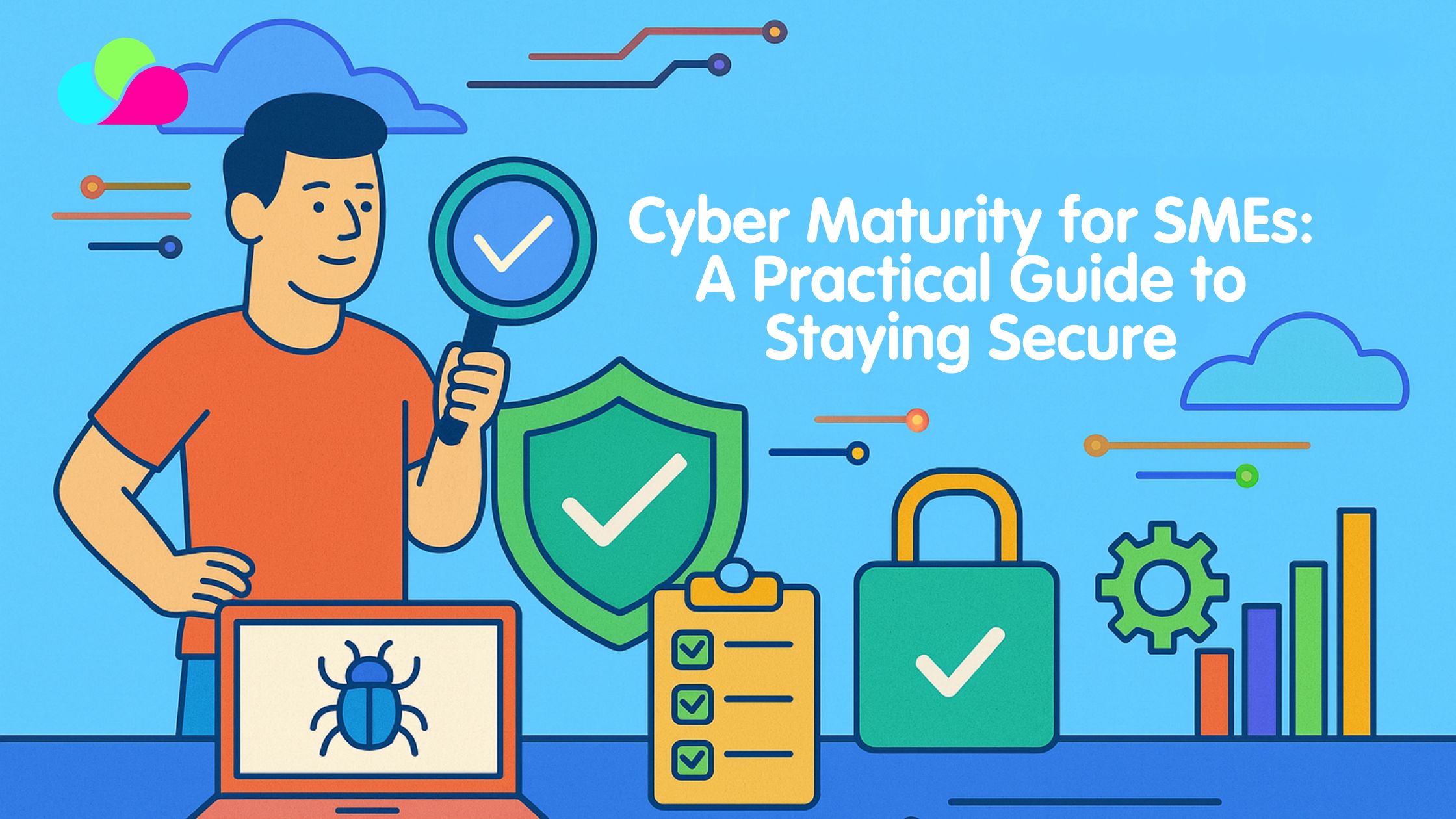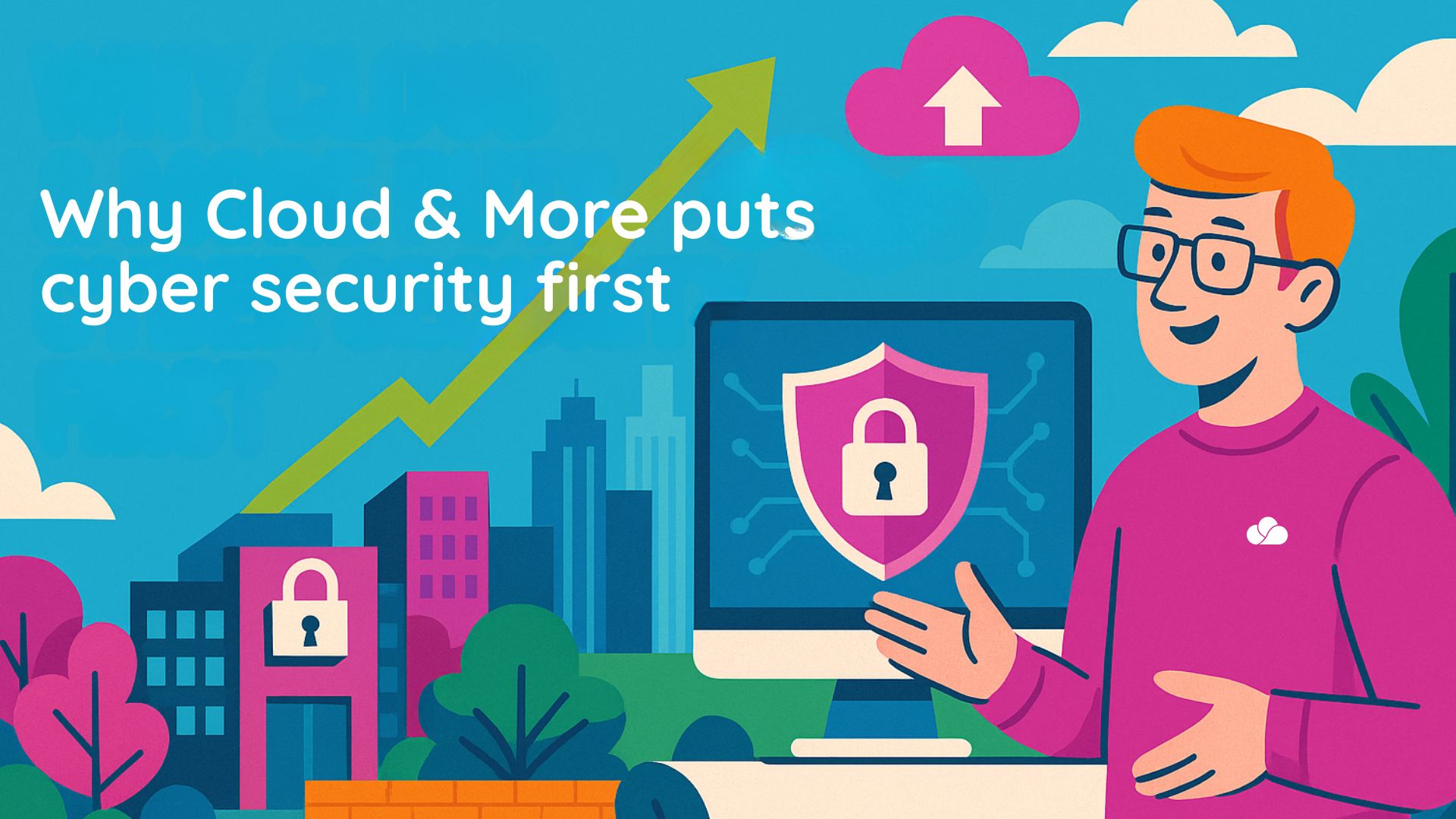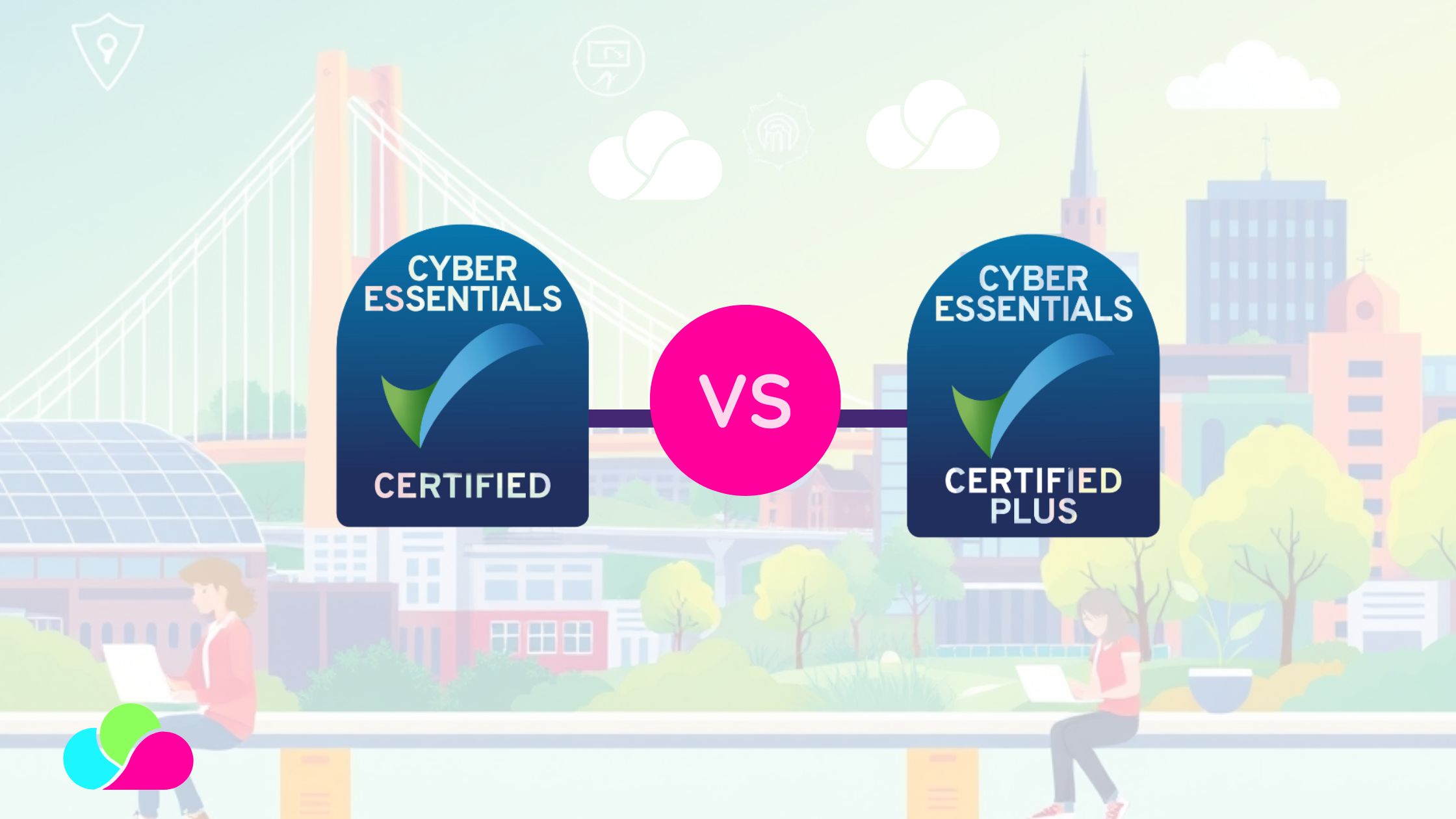Last updated: 11 August 2025 · Author: Victoria Bowcock
Quick answer
Cyber maturity is how ready your business is to prevent, detect, and recover from cyber threats. The higher your maturity, the safer your data, reputation, and clients. Most SMEs are less prepared than they think but you can fix that with a few practical steps.
Cyber security isn’t just having antivirus and hoping for the best. It’s building a culture where security is baked into every decision, process, and click. That’s cyber maturity and for SMEs, it’s now business‑critical.
A 2024 Hiscox Cyber Readiness Report found that 53% of UK small businesses had at least one cyber attack in the past 12 months. Most weren’t targeted because they were famous, they were targeted because they were easy.
What cyber maturity really means
Think of cyber maturity like your business’s cyber fitness level:
- Low maturity — Reactive. You fix issues when they happen but don’t track or prepare for them.
- Mid maturity — Some tools and policies exist, but there are gaps in consistency, training, or monitoring.
- High maturity — Security is part of your DNA. Your team is trained, threats are monitored 24/7, and there’s a tested plan for when something goes wrong.
It’s not about never having an incident, it’s about how quickly and effectively you deal with one.
Why cyber maturity matters for SMEs
Small businesses often think, “We’re too small to be a target.” Unfortunately, attackers know SMEs tend to have weaker defences and are more likely to pay to get back online quickly.
- Lower risk of a breach and fewer sleepless nights.
- Faster recovery when things go wrong.
- Stronger client trust, a genuine competitive edge.
- Compliance confidence, no last‑minute panic when the auditor calls.
How to measure your cyber maturity
You can’t improve what you don’t measure. Start with these five areas:
- People — Are your team trained in spotting phishing emails? Do they know what to do if something looks suspicious? Regular, bite-sized cyber awareness training is one of the cheapest and most effective defences you’ll ever have.
- Processes — Do you have clear policies for things like password management, data storage, and remote working? Is there an incident response plan you’ve actually tested?
- Technology — Are you using up-to-date, best-of-breed security tools? That means more than antivirus.
Spotting threats on every device (endpoint detection)
Blocking dangerous emails (email filtering)
Watching for attacks 24/7 (MDR)
Keeping safe copies of your data (secure backups)
- Monitoring — 24/7 eyes on systems. Criminals don’t clock off at 6pm.
- Governance — Someone owns cyber security. Clear accountability matters, even in small teams.
How SMEs can improve cyber maturity easily
- Start with a cyber maturity assessment — Get a clear picture of your current risk.
- Train your people — Regular, bite‑sized sessions beat once‑a‑year marathons.
- Harden your defences — Layered security: firewalls, endpoint protection, email filtering, and tested backups.
- Test your response — Run through a simulated attack so your team knows exactly what to do.
- Review quarterly — Threats evolve. So should your defences.
Common SME cyber maturity mistakes
- Treating cyber security as “just IT’s job.”
- Paying for tools but leaving them half‑configured.
- Not removing ex‑employee access immediately.
- Not testing backups, if you haven’t restored in 6 months, you don’t really have one.
The good news
You don’t have to become a cyber expert overnight. Building maturity is about steady, consistent improvement, the kind that pays off when something happens. And unlike big corporations, SMEs can make decisions and implement changes faster.
We’ve helped businesses go from “I think we have antivirus” to fully monitored, secure, and confident in just a few months. It’s about knowing where you are today and taking the right next step.
Read our blog: Antivirus isn’t enough
FAQs
What is cyber maturity in simple terms?
It’s how ready and able your business is to handle cyber threats, from preventing them to recovering quickly if they happen.
Why should SMEs care about cyber maturity?
Because cyber attacks are no longer “if” but “when.” Higher maturity means less damage, faster recovery, and stronger client trust.
How often should we review our cyber maturity?
At least quarterly, threats evolve quickly, and so should your defences.
Can Cloud & More help improve our cyber maturity?
Absolutely. From training your team to implementing 24/7 monitoring, we make cyber security easy and approachable. Explore our IT security services
How cyber mature is your business
Take our 2-minute cyber maturity assessment to find out how prepared your business or organisation really is.
See what our clients have to say
About the author
Victoria is the Marketing Manager at Cloud & More, combining creativity, strategy, and a clear, human approach to make cyber security and IT easy to understand. With a background in design and marketing, she’s passionate about turning complex tech into advice that businesses can actually use.






